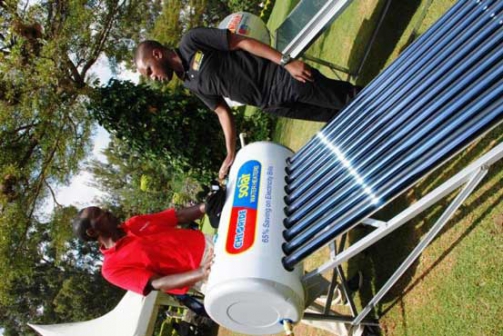×
The Standard e-Paper
Stay Informed, Even Offline

The implementation of the laws requiring households and commercial buildings to have solar hot water equipment has seen a surge in the number of firms marketing the products. This has seen a segment of the industry now raise fears that Kenyans are being exposed to inferior and even substandard products.
The Energy Regulatory Commission (ERC) started implementation of the rules that require landlords owning buildings that consume above 100 litress of hot water daily to install solar water heating systems this year.